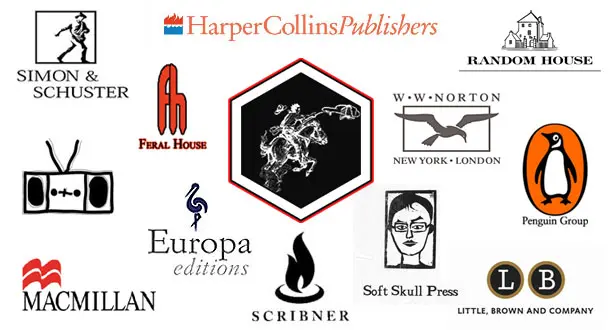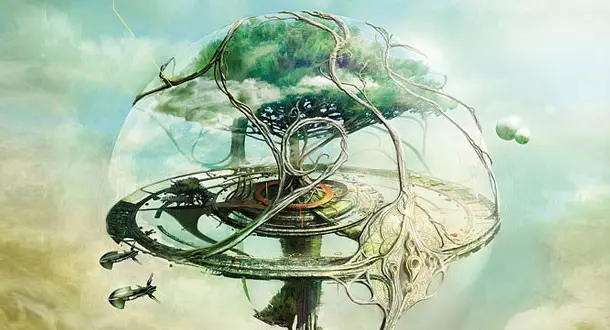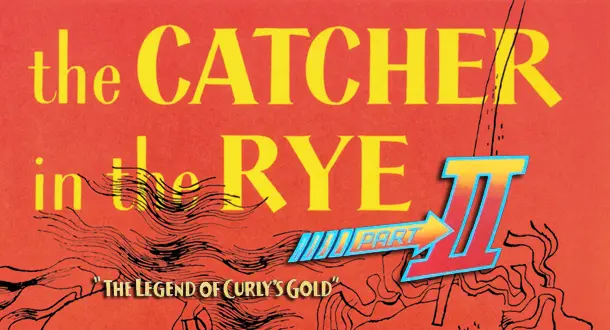Menu
Columns
Showing 3546 Columns
Showing 3546 Columns
September 3rd, 2012

Every month I'll be toiling in the dank, dark mines of literary obscurity, scouring the catalogues of every major publisher to bring the LitReactor faithful a few choice titles hitting the shelves. The following is a brief look at what's worth checking out in September. Full disclosure: unless otherwise noted, none of the below books have been reviewed by myself or other LitReactor staff. These are just a few recommendations based on publisher's notes and my own opinions. Without further ado:
Read Column →August 31st, 2012

Alright people, time for a little Friday fun. Who's up for a rousing game of F Marry Kill, but with a literary twist?
Read Column →August 31st, 2012

Pirating digital content is illegal. Full stop. Yet people continually steal eBooks and movies and television shows and treat it like it's no big deal. There's a couple of reasons it happens: Torrenting is easy and the chance of getting caught is low. And saving money is fun, especially when the economy isn't at its strongest. But an eBook is a luxury, not a right. If you can't afford it, too bad, but that's life.
Read Column →August 31st, 2012

Flash fiction: A style of fictional literature marked by extreme brevity. How This Works We give you something. It could be a picture or an idea or a sentence. You write a flash fiction piece, using the thing we gave you as inspiration. Put your entry in the comments section. One winner will be picked, and awarded a prize.
Read Column →August 30th, 2012

If there’s one commodity actors are not short of, it’s ego. The trouble with egos is that they’re very like the insatiable plant in Little Shop of Horrors (feed me Seymour!): demanding of constant sustenance. Acting is rarely enough for most actors. In their search for a bigger share of the spotlight, some actors turn to directing, some to music. Some even turn to art. And some – inevitably - turn to writing.
Read Column →August 29th, 2012

Okay, if you love editing your writing, raise your hand. Come on now, don’t be shy, who loves to pour over their work cutting, pasting, cutting, adding, all of that stuff? Anybody? You in the back, put your hand down, you’re a freak. Nobody likes to edit, to proof their own work. It’s a slow, painful process. But if you can get over the worry and fear and self-doubt that is constantly trying to worm its way into your writing, maybe we can get through this together.
Read Column →August 29th, 2012

No matter the content, the inspiration, or the writer, a good piece of writing is only as strong as its sentences. In the creative writing world, practically anything is possible. Crack a novel and you will find alternative punctuation, clever sentence fragments, and creative twists on traditional grammar and usage. That’s what makes writing and literature fun and exciting. However, if you’ve read any of my articles, you’ve probably gleaned by now that I advocate knowing the rules before you break them.
Read Column →August 28th, 2012

Mythology has long been a source of inspiration, and indeed material, for those writing fantasy fiction. One of the gold standard examples I always use is J. R. R. Tolkien, whose Lord of the Rings universe was influenced by Norse mythology. Tolkien’s creation took a much different form, but there are echoes of these myths in Middle-Earth and beyond.
Read Column →August 27th, 2012

A literary trend I've never been able to support is that of sequels to classic novels written by different authors. Even when the author's estate actually sanctions these sequels, I will never consider them canon. I've read a few of them out of sheer curiosity and a penchant for masochism, and I cannot recommend a single one.
Read Column →August 27th, 2012

Death The irreversible cessation of all vital functions especially as indicated by permanent stoppage of the heart, respiration, and brain activity : the end of life. *
Read Column →🎼
Tell us about your book, and we'll give you a writing playlist
Take our 1 minute quiz to find your ideal tunes.